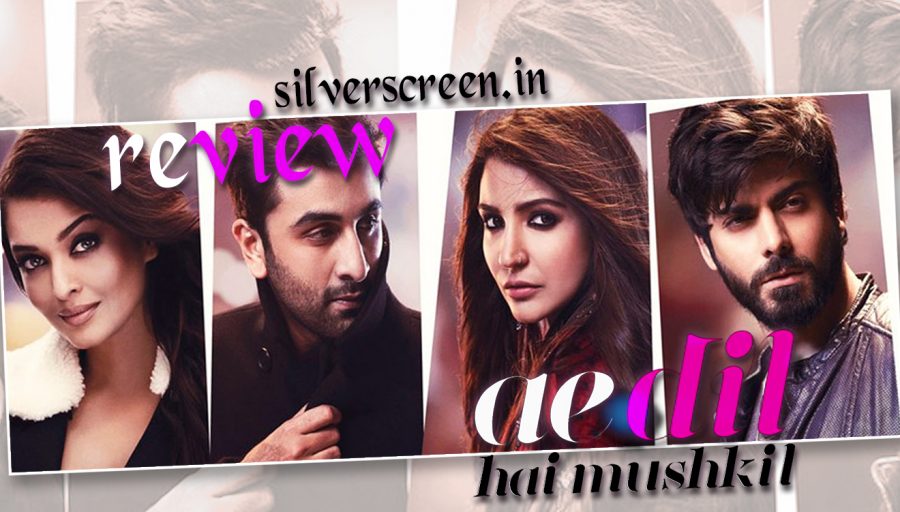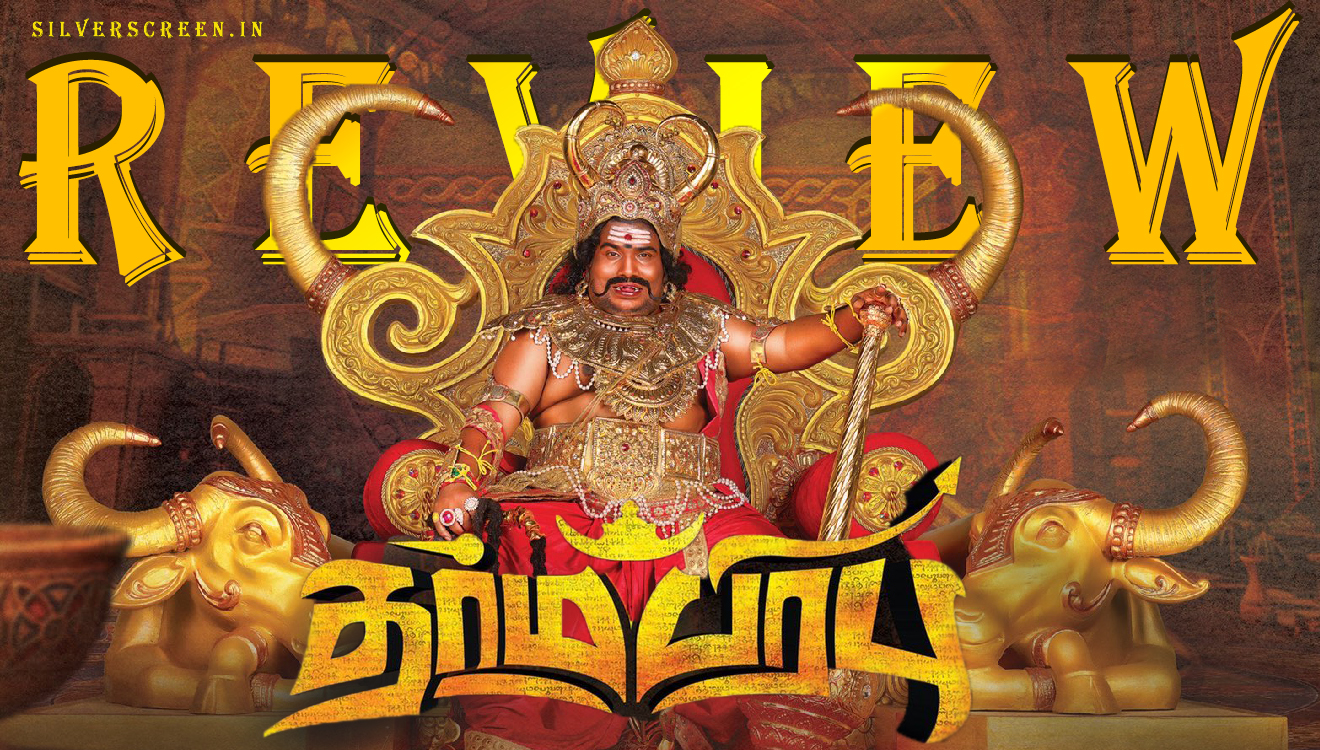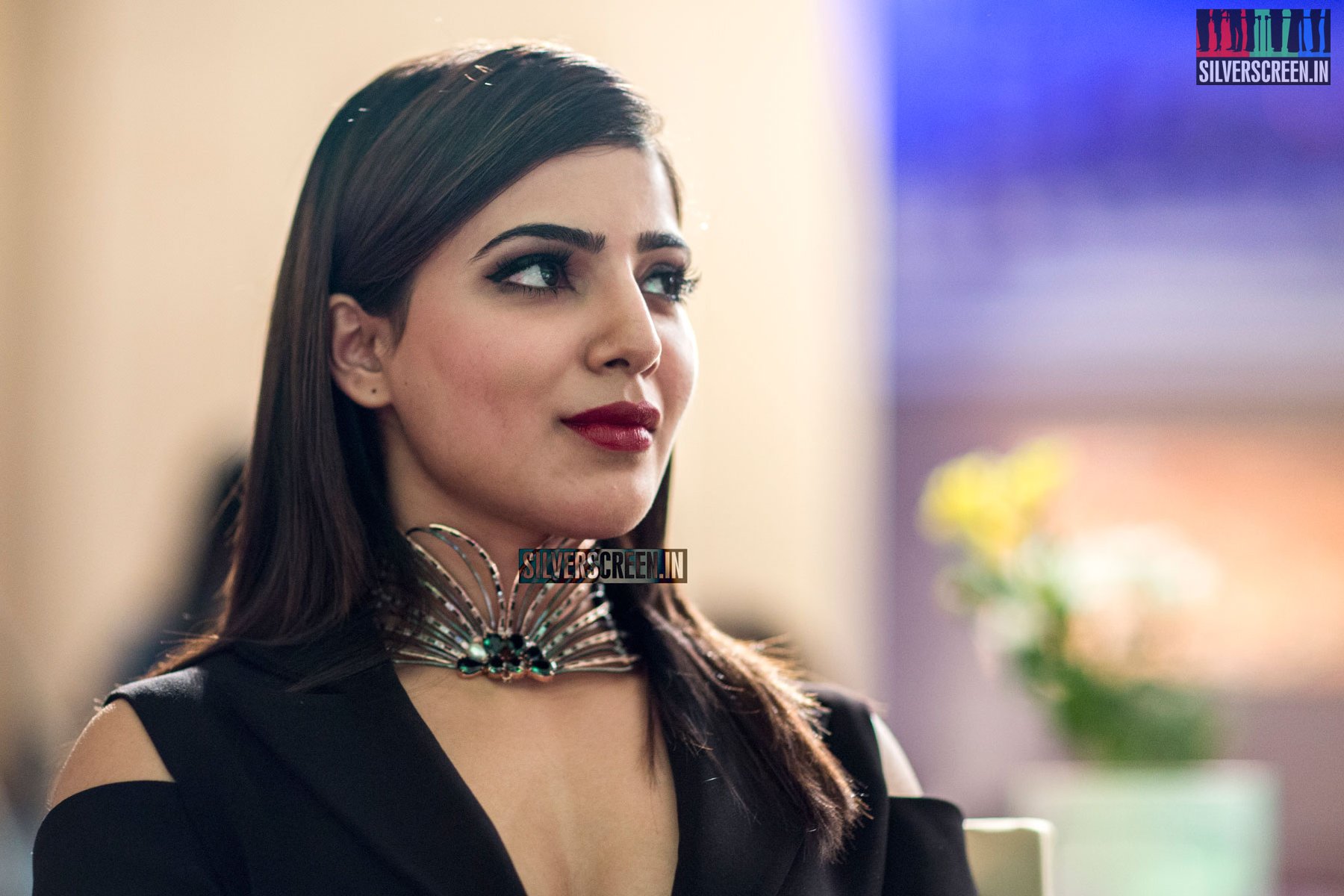Karan Johar’s latest movie, Ae Dil Hai Mushkil, is about the age-old Bollywood tussle between love and friendship. A boy meets and hearts a girl who friendzones him. He does everything he can to change her mind, but fails. She tries to stay away from him, yet her heart refuses to. In the course of time, both of them break some hearts and complicate some lives.
Ae Dil Hai Mushkil is designed to be different from Karan Johar’s previous films. Shortly after they meet for the first time at a bar, Ayan Sanger (Ranbir Kapoor) and Alizeh Khan (Anushka Sharma) land on a couch and make out. She laughs at him for being a bad kisser, he offers to do it again and prove her wrong. The film whizzes past that one-night-stand and never refers to it again. Soon they strike up a friendship which looks natural. And never do they mention Wedding. Parents or other elder relatives do not make an appearance anywhere in the movie. The youngsters in Karan Johar movies, finally, are on their own.
However, at the end of it all, ADHM offers nothing to stop that impending yawn. Everything about the storyline invokes a sense of deja vu. And loose ends abound. The emotional outbursts often go over-board and start looking orchestrated.
***
ADHM tells us that Karan Johar is not done with the stories of uber-rich NRIs; perhaps it is easier for him to weave drama around people who can afford to spend much of their day to deal with emotions. They live in London, and sometimes in Paris and Vienna. The film pretends to move to Lucknow for a while, but sticks to the interiors of a decked up, palatial house the whole time. The characters live in opulent apartments and villas.
Ayan has a billionaire father who is loveless, yet dispatches a private jet whenever the son wants to travel. Alizeh hails from an equally rich family that seldom interferes in her personal choices. The youngsters go bar-hopping, attend dance sessions, and spend time without worrying a bit about finding a job or saving for a rainy day, unlike ordinary people. Fawad Khan’s Ali, the only person in the film with a steady career, is a globe-trotting DJ. Aishwarya Rai’s Saba lazes in her plush bachelorette pad when she is not busy posing with thick books or reading out her poems to rich NRI audience.
In spite of their cosmopolitan existence, the film (forcefully) emphasises that the characters are very much Indian at heart. Like Rani Mukherjee’s character in Kuch Kuch Hota Hai who renders a bhajan in flawless Hindi and proves her Sanskari-ness, ADHM‘s Ayan, who is born and brought up in London, is a lover of Mohammad Rafi songs. Alizeh, always dressed up in ethnic Indian wear, is obsessed with Bollywood films. She further mitigates any question on her identity by ridiculing Lisa (Lisa Hayden) for her inept Hindi. Saba is an Urdu poet, and Ali an exponent of Sufi music.
***
This initial moments of the film are delightful. Ayan has the emotional quotient of Ted Mosby, and Alizeh is somewhere between Robin Scherbatsky and Barney Stinson. They party in London and Paris, spoof the vintage Bollywood dancing on picturesque mountains, and cuddle together under one blanket. Sharma’s energy is contagious and Kapoor effortlessly plays the romantic and emotionally vulnerable Ayan. Their chemistry is flawless and natural.
But this fun train comes to a screeching halt soon, for it is never easy to love or be loved in Karan Johar’s universe. In ADHM, Ayan wants to take this friendship with Alizeh to the next level, but she wants a sexless status quo. He aspires to be a singer and she opens him up, helps him tackle his fears and brings the best out of him. Later, the pain of losing her makes him a great singer. Yes, like in Rockstar. Actually, a lot like in Rockstar.
***
The film’s biggest assets are its lead couple – Ranbir Kapoor and Anushka Sharma – who perform like there is no camera watching them. For eye candy, there is Aishwarya Rai in a brief role, looking ethereal as ever. And Fawad Khan, with that beard, more photogenic than before.
Ranbir Kapoor is, by far, the best actor of his generation. His physical fluidity was what made the character in Barfi so delectable. He can scream, cry and laugh like he really means it. In Tamasha, the scene where he confronts Tara who rejected his marriage proposal, is a testimony to his acting prowess. In ADHM, he brings out the confusions and emotional vulnerabilities of Ayan brilliantly.
Fawad Khan’s character, unsurprisingly, is sketchy. The blame, let’s assume, rests with the right-wing nationalists. They threatened the director with a ban for featuring a Pakistani actor; forcing him to chop off many of Khan’s scenes. It’s not clear why Alizeh left Ali twice, although she refers to him as the love of her life. The film doesn’t explain why Ali never notices the gloom on her face, although they seem to be a couple deeply in love. In spite of these shortcomings, Khan manages to shine in the cameo appearance.
As for Aishwarya Rai: when you have a face that can launch a thousand ships, why try to act and jinx the spell? When Ayan bumps into Saba at the airport, he pauses and grins ear-to-ear wondering if she is real or a celestial being. When Alizeh in her turn meets Saba, she can’t help gushing about the latter’s good-looks. Even her former-husband continues to be smitten by her. What role could a woman as beautiful as Rai play? An exotic Urdu poet settled in Vienna is the choice that KJo made. She doesn’t render a memorable performance as an actor, but strikes gorgeous poses time and again.
***
Recommended
ADHM has a great soundtrack. Apart from Pritam’s works, there are cover versions of classics – A sensuous Aaj Jane Ki Zid Na Karo, a cheerful An Evening In Paris, and a soulful Lag Jaa Gale. The tracks are perfectly in sync with the film’s situations, and they are visualised beautifully. They rescue the film from melodrama and illogical turns of events. Just as you wonder how a character, who is supposedly in the fourth-stage of cancer, looks as healthy and glowing as she was before, along come Lag Jaa Gale to wash off the story’s bad taste from the mouth.
***
ADHM might mark KJo’s departure from the cosmetic relationship dramas that made him famous. In ADHM, his characters are more life-like and less loud. Their pain looks more real. As if he has moved closer to Imitiaz Ali’s turf.
***
The Ae Dil Hai Mushkil review is a Silverscreen original article. It was not paid for or commissioned by anyone associated with the movie. Silverscreen.in and its writers do not have any commercial relationship with movies that are reviewed on the site.



